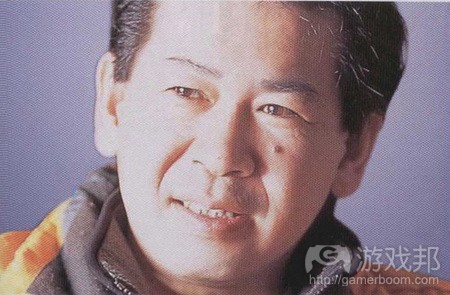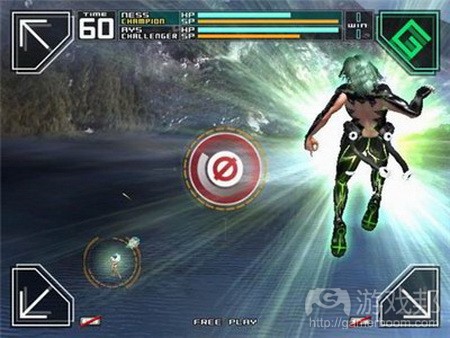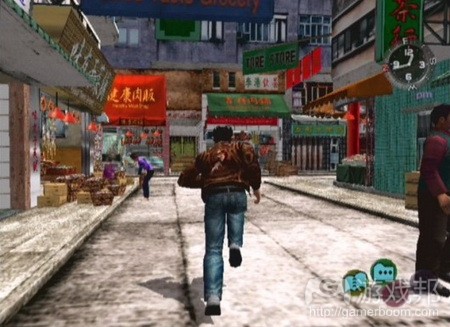世嘉铃木裕谈其过往经历及对新兴游戏看法
游戏邦注:本文作者是Brandon Sheffield。传奇游戏设计师铃木裕即将离开世嘉,他日前接受采访讲述其过去经历及未来计划,内容从80年代的装配编程跨越至新手机和社交平台发展潜力。
铃木裕自步入游戏行业以来就一直身处游戏设计和技术前沿。就他制作的每款游戏而言,他不仅将技术推向新水平,而且还创造新游戏类型。从《After Burner II》到《Out Run》、《VR战士》,再到《Shenmue》,铃木裕不断开辟新天地。
不幸的是,自《Shenmue》系列商业成效不尽如人意后(游戏邦注:游戏至今尚未推出所有系列),铃木裕也日渐淡出公众视线。
他在世嘉推出的上款重要作品是新战斗游戏《Psy-Phi》,游戏虽然2006年已在电玩进行测试,但尚未推向任何平台。
他对世嘉做出的贡献是否会因《Shenmue》的惨淡结局而像其他众多日本设计师那样被泯灭?或者他是否像其他众多扶摇直上的日本设计师那样被赋予纯管理者角色?
他日前接受采访,讲述其当前工作,同时缅怀过去,展望未来。
首先让我们来揭开这个最明显的谜团。你过去10年的主要工作是什么?
2008年我成立自己的公司YS NET。今天9月份我将离开世嘉,纯粹担任该公司顾问。所以从2008年到今年9月份,我一直任职于两家公司。我在新公司做的工作几乎都是自己想做的。
你是否愿意谈谈之前的那段时光,就是从制作《Shenmue II》到成立YS NET?
2004年我是呆在……那个团队叫什么来着?它的名字改过很多次,但就作品来说,我参与《STV》(游戏邦注:也就是《Sega Race TV》),还有《Psy-Phi》,后者虽然有公开,但最终未能发行。我在《STV》充当的是制作人角色,丝毫没有涉及任何总监事务。而在《Psy-Phi》我一直是项目总监,一直到游戏最终取消。
其中还有另一款游戏,它也被世嘉中途取消。但这也许是为朝更好方向发展,因为当时世嘉情况并不乐观,他们取消很多项目。也许我们不该谈论这部分(笑),我不希望影响世嘉形象。
我不认为这是个秘密。公司新社交游戏《Shenmue Town》为什么会选择和Yahoo! Appli合作,而不是Android、Phone之类的平台呢?
日本DeNA推出《Mobage Town》,其携手Gree抢占大半日本市场。所以初期我们选择同Yahoo! Appli平台合作,游戏最初就是计划走多平台路线,我们现在也开始考虑智能手机平台。
iPhone似乎已在日本兴起,显然该设备在西方市场表现很突出。所以迎合西方市场似乎是个不错选择。
Android也很风靡,为什么不是它呢?
的确,我本身也用Android。
我认为平台不是问题。当然我们还是需要做出相应调整。
在你大半职业生涯中,你总是处在技术前沿,推动电玩或掌机领域的发展。我猜这应该是你当年的有意选择,现在你是否刻意避开该领域或者这在你意料之外?
我仍然愿意挑战该领域的尖端技术。
你认为掌机技术如今该朝什么方向发展?是云计算还是浓缩至小型设备?
我觉得有很多可能,网络化,云计算,还有便携设备。苹果有个叫做AirPlay的技术,用户能够使用无线网络串流音乐,我认为这就是未来的发展方向,用户能够将掌上平台的视频和各种数字媒体移植至其他更大设备,通过便携设备同其他玩家共同玩游戏。
只要有人能够创造更直接的iPhone体验界面(游戏邦注:iPhone作为独立控制器表现还是略逊一筹)。
或许的确如此,但这个界面还有很大发挥空间。
能否请你谈谈对《Shenmue Online》的看法?
我更希望从事类似MMO的工作。
你如何在《Shenmue》世界实现这个目标,如今大家都有各自的生活?你会扮演店铺老板之类的角色吗?
是的,我希望大家都能够共同生活在同片世界。玩家进入的是他们自己创造的村庄,就好像多CPU系统,每个玩家都是个CPU。
你认为技术在游戏设计中的重要程度?如今你的设计不断提高,3D技术也不断发展,电玩面板也越来越快。你认为游戏设计是推动技术,还是受限于技术?
这是个棘手的问题,但我认为最好的答案是大家无需借助技术也能制作自己喜欢的游戏。但技术进步确实推动游戏发展,将游戏推向新水平。
就我个人来说,我总是跟着新技术开发游戏。换句话说,就是过去耗费2小时完成的计算,忽然之间你就能够在硬件和软件中找到新解决办法。这本身就带给游戏新出口和发展机会(游戏邦注:如AI)。它带来更多获取乐趣的机会,更多CPU能量。我认为这本质上能够促使更优质游戏的诞生。
世嘉过去也是个软件开发公司,你或许也曾是公司技术开发的一份子。你是否会再从事同样的工作呢?
掌机是当时性能最好的设备,但不久情况就出现变化。世嘉曾沿此方向发展一段时间,但最终选择放弃,世嘉当然不可能短时间内就推出新的高性能硬件设备。
但公司未来可以寻找合作伙伴。我们可以寻找硬件设备制造商,然后提供他们没有的游戏理念,然后共同合作开发。我最开始是担任软件程序员,但总的来说,我们制作硬件设备的目的是承载我和世嘉同事设计的游戏。若能再次实施该方案就太好了。
问个额外问题,你觉得那时谁是最优秀的装配程序员?
世嘉当时共有5个程序员,其中4个非常优秀,当然我是其中最突出的(笑),或者至少我在速度和最优化技巧方面是最优秀的。
Naka也有类似技能。他完成的Master System Space Harrier端口,实在颇令人惊讶。
是的,没错。还有Katagi(游戏邦注:他是《Fantasy Zone》和《Columns》的编码员以及《Sakura Taisen》的总程序员)以及世嘉项目幕后工作人员Tojo和Ikebuchi(他是《VR战士》的合作程序员,同时是梦工厂的联合创始人)。他们都很擅长机器代码。Mark Cerny也很优秀。
下面就来谈谈电玩面板,你对现今的电玩设备有何看法?
这片市场显然也在萎缩,是吧?其转机不大(笑),我们对此能做的不多。现在有很多其他有趣的事情在等着我们,比如YouTube和互联网。
电玩的一大魅力是玩家能同其他玩家汇集至同个地方共同体验。你觉得在线游戏在此方面有没有相似之处呢?
网络游戏让你享有更大玩家互动基础。有了电玩,你随处都能够找到12人甚至上百人充当自己的伙伴或竞争对手,也许是10人或20人,这取决于游戏类型。但网络游戏能够覆盖更多玩家,有很多对手是你线下从未遇过的。这是个完全不同光景。
我很好奇你对战斗类游戏发展前景的看法;从你涉足该领域以来,游戏是如何开始逐步演变成3D形式。
我觉得这类游戏如今发展到这个程度很令人惊讶。我的意思是说,我们当时接触的首个硬件设备在每秒60帧数时只能生成300个画面。
最近独立游戏又兴起淡着色、高FPS(每秒帧数)和少画面生成。你是否注意到该趋势?
真的吗?对此我不是很熟悉。但我很高兴看到DirectX如今越来越便捷,让大家都能够参与游戏开发。
我认为投身此内容的都是些具有怀旧情结,认为简单自有其动人之处的人士。
我想原始的外观让大家更容易把握。
你提到说你目前所做的正是你想做的,是指《Shenmue Town》,还是其他作品?
可以说《Shenmue Town》是未来计划的铺垫。我希望设计更具奇幻色彩的作品。我在这个领域有很多想法。
你自己还从事编程工作吗?
我有段时间没做这方面的工作了,但最近我又开始涉猎,这是15年来的首次(游戏邦注:主要是模拟、算法检验和内容)。能够如此轻松重操旧业着实令我有些震惊。
你从事编程工作时,C++还不是主流语言,当时装配占据主导地位。你是否觉得编码环境如今变化巨大?
过去我们处理的主要是装配、Fortran、Pascal和Forth……语言类型还有很多,我接触过所有这些语言。我从不排斥学习新语言。但我最开始学的是BASIC,我依然对这个语言情有独钟。
最新BASICs,如Visual Basic,有很多类似C语言的元素。但就我个人来说,我就无需再编写最终制作代码,相反我能够专心在逻辑和算法等内容。因为我不再觉得自己受限于语言变化。
一直以来,我们都有些“著名”游戏总监,比如说你。如果这些人参与某个项目,大家就会着迷此作品。这是就大型游戏而言,如今随着Facebook和iPhone游戏的涌现,游戏规模越来越小,传播越来越广泛。你认为游戏领域还会再次出现新一代知名总监,新形势下他们适合朝何处发展?
我认为肯定会出现新生代著名总监。近来大型游戏公司又开始着手制作大项目,是吧?小型公司在此略逊一筹。这就像是40或60亿日元(游戏邦注:相当50或75亿美元)的项目同3亿日元预算之间的竞争。
但如果你纯粹只是做这些大项目,游戏行业就会因此步履蹒跚。所以我认为小型开发公司入驻这些新平台,进行更高水平的竞争是件很棒的事。这花费他们更少资金,如果他们能够推出畅销作品,会让这些总监获得媒体关注。
我之所以有此想法是因为西方国家人人都在玩《愤怒的小鸟》,但有鲜有人知道作品的设计师?
当时许多日本公司也避免让开发者将他们的名字放在游戏首页,因为他们担心其他公司会挖人。所以行业从一开始就形成这种不良传统,是吧?我认为这不过就是让大家展露自己,宣传自己而已。
从更大范围看,很多日本公司都不愿让员工参加GDC,因为他们不希望自己的员工受他人影响或同他人交流。
是的,这是我对行业不满的一点。毕竟在音乐领域,我们会看到作曲家和歌唱家常常在媒体前露面。大家也都知道电影的导演和编剧家。视频游戏已经成为同此不相上下的行业,但仍然存在这种相互隐瞒的风气。游戏文化仍然十分肤浅。这些都是创作领域,是吧?
你目前对世嘉产品(游戏邦注:他早前的系列作品)有多大支配权利?
在此方面我得和世嘉高管逐个协商。
我什么时候能够看到你的新作,来自你和你公司的原始IP?
我们目前正在准备很多项目,但一切只有等到我成功募集资金(笑)。
资金通常都是最困难的部分。
但你也知道,如果作品能够一炮而红,那么公司就能步入新水平。我目前正在构思很多新想法。(本文为游戏邦/gamerboom.com编译,如需转载请联系:游戏邦)
Yu Suzuki At A Time Of Transition
by Brandon Sheffield
[Legendary game creator Yu Suzuki, soon to leave Sega, sits down with Gamasutra to take a look at the past and onward into the future -- taking in everything from '80s assembly programming to the possibilities he sees for new mobile and social platforms.]
Yu Suzuki has been on the forefront of game design and technology since he entered the industry. It seemed as though with every game he made, he was not only pushing game technology to new levels, he was inventing a new genre. From After Burner II, to Out Run, to Virtua Fighter, to Shenmue, Suzuki has constantly blazed trails.
Unfortunately, following the commercial underperformance of the groundbreaking Shenmue series, which remains incomplete to this day, Suzuki has operated below the radar.
The last major project he announced for Sega was a new fighting game, Psy-Phi, which though tested in arcades in 2006 was never released for any platform.
Have his contributions to Sega been dialed back because of the fate of Shenmue, like many Japanese developers who preside over unsuccessful projects? Or has he, like many Japanese creators who rise through the ranks, been relegated to a purely managerial role?
Gamasutra recently sat down with him to find out what he’s been up to recently, to reminisce about the past, and discover his plans for the future.
Let’s start with the obvious mystery. What have you been up to for the past 10 years or so?
Yu Suzuki: Well, in 2008 I established YS NET, my current company. I’ll be leaving my current job at Sega this September, and after that point I’ll remain on as an advisor. So I’ve formally been with both companies from 2008 until September 2011. With the new company, I’ve been doing pretty much what I personally want to do myself.
Do you want to talk at all about before that — between Shenmue II and the formation of YS NET?
YS: Well, in 2004 I was… what was the name of the group? The names changed a lot, but as far as the games are concerned, I was involved with STV [Sega Race TV], and also with Psy-Phi, a game that was announced but ultimately wound up not getting released. With STV I was just the producer, not doing any director stuff with it. On Psy-Phi, I was director until the point it was cancelled.
There was one other title as well, and that one also got stopped by Sega midway. But maybe that was for the better, because the Sega of the time was not in all that good shape, and they were shrinking down a lot of projects… maybe that part of it doesn’t need to get written down. [laughs] I don’t want to impact Sega’s image.
I don’t think that was a secret to anyone. With the new social game Shenmue Town, why go with Yahoo! Appli instead of Android or iPhone or something like that?
YS: Well, in Japan, there’s an outfit called DeNA that’s launched the Mobage Town network service. That, along with Gree, occupies most of the market share in Japan right now. So we went with that platform to start out with, but it’s been our intention from the start for this to be a multiplatform project, so we’re thinking about smartphone support now.
iPhone seems to have really picked up in Japan; obviously it’s doing well in the West, so it seems like the direction to go to make Western fans happy.
YS: And Android will pick up as well, too, won’t it?
Yeah. I have Android.
YS: I don’t think the exact platform will be much of a problem either way. Certainly there are changes that would need to be made.
For most of your career, you were at the forefront of technology, pushing things forward in the arcades or consoles. I assume that was a conscious choice back then — are you consciously not moving in that direction now, or is that something you’re not really thinking about?
YS: I do still want to challenge frontiers along those lines.
What do you think is the direction that kind of technology is going now? Where do you see it going — like, cloud computing or scaling down into smaller devices?
YS: I see a lot of possibilities in all of it — networking, cloud computing, portable devices. Apple has a technology called AirPlay that lets you stream music wirelessly, and I think that’s where it’s going to go — you’ll be streaming video and all sorts of other digital media from handhelds to large screens and playing games with lots of other people from your portable devices.
As long as someone can figure out a good direct play interface on the iPhone. It’s not very good as a solo controller.
YS: Perhaps, but there’s still a lot that can be done with that interface, too.
If you want to talk about it, what was your vision for [cancelled project] Shenmue Online?
YS: I wanted to do something MMO-like.
And how would you make that work within the Shenmue world, with everyone going about their daily life? Would you be able to play as a shopkeeper or something like that?
YS: I would have liked to have everyone living together in the same world, yeah. It’s a town that players create as they enter the game and play it — something like a multi-CPU system, with each player serving as a CPU.
How important do you think technology is to the design of a game? As you were evolving your designs, 3D was evolving, arcade boards were getting faster, and so on. Do you feel like game design pushed the technology; or did you feel constrained by tech in your designs?
YS: That’s a hard question to answer, but the best way to do it, I suppose, is to say that you can make any game you like without the technology. Having advances in technology, however, does make it easier to evolve games, to take them to the next level.
Personally, I always want to make games that go hand-in-hand with new technology. Let’s say there was some calculation that used to take two hours or so to finish. Then, suddenly, you find a new way to do it in software and hardware. That, in itself, opens up new doors and opportunities for games — in AI, for example. It creates more opportunities for fun, the more CPU power you have. I think it can inherently lead to better games.
In the past, when Sega was also a hardware company, you perhaps had the ability to help shape that technology. Do you see yourself doing something like that in the future again?
YS: At the time, arcade hardware was the best out there in terms of performance, but after a while, that obviously ceased to be true. Sega proceeded along those lines for a while, but eventually they stopped, so certainly there’s no way Sega is going to produce new high-performance hardware all of a sudden.
There’s always the possibility of a partnership or something in the future, however. We can go to a hardware maker with a game concept they don’t have, then we can work on it together. I started out as a programmer, on the software side, but by and large we were making hardware for the express purpose of the games I and everyone else at Sega were working on. It’d be nice if we could take that approach again sometime.
This is a silly side question, but who do you think was the best assembly programmer at the time?
YS: There were about four of five programmers at Sega who were really good — I was the best, of course. [laughs] Or, at least, I was probably the best when it came to speed and optimization tricks.
That was a similar skill set to Naka. He did that Sega Master System Space Harrier port that was really crazy.
YS: Right, yeah. There were also Katagi [Hidekazu Katagi, coder of Fantasy Zone and Columns and chief programmer on Sakura Taisen] and someone who was behind the scenes on a lot of Sega [projects], Tojo, and Ikebuchi [Tooru Ikebuchi, co-programmer on Virtua Fighter, who later co-founded Dream Factory]. They were all really good at machine code. Mark Cerny, too.
We were talking about arcade boards for a minute — what are you thoughts on the present state of arcades?
YS: That market certainly shrank too, didn’t it? Well, it can’t be helped! [laughs] You can’t do much about it. There’s lots of other fun things to do now — YouTube, the internet, all kinds of things.
One of the main attractions of arcades is getting together with other people to play games in the same place. Do you see any similarities to online games in that regard?
YS: Network games allow you a larger base of players to interact with, is the thing. With an arcade, you had anywhere from a dozen to around a hundred people you could theoretically have as partners or opponents — maybe 10 or 20, depending on the genre. With network games, though, there are tons more people, and a lot of opponents you never would’ve met offline either. It’s really a different scene like that.
I’m also curious about your thoughts on the evolution of the fighting game genre; how it’s evolved in 3D form since you were involved with it.
YS: It’s really amazing that they’ve advanced the genre up to this point, I think. I mean, the first hardware we had to work with, we could generate only 300 polygons at the same time if we wanted to keep it at 60 frames per second.
Lately, with indie games, there’s been a resurgence of that flat-shaded, high-FPS, low-polygon look. Have you noticed this trend at all?
YS: Really? I’m not familiar with that. I do like, though, how DirectX has gotten so easy to use that all sorts of people are making games now.
In the case of this stuff, I think it’s people who have a nostalgia for how that looks, who think there’s a sort of beauty to its simplicity.
YS: That primitive kind of look makes things easier to grasp, I suppose.
You mentioned that you’re doing what you want to do now; is that Shenmue Town, or some other thing?
YS: Well, you could say that Shenmue Town is a step toward what comes next. I still want to make something with more of a fantasy/fantastic flavor. There are a lot of ideas I have in that area.
Do you still do any programming yourself?
YS: I hadn’t done any in a while, but I’ve been going just a little with it just recently, for the first time in 15 years — mainly simulation and algorithm checking and stuff. It’s surprising how easy it is to pick up again.
You did most of your programming before C++ became a big thing, when assembly was still the main language. Do you feel the coding environment has changed much since the old days?
YS: In the past, we had things like assembly, Fortran, Pascal, Forth… We still had a lot of languages to work with, and I worked with all of those at one point or another. I never really had much resistance to learning new languages. I learned BASIC in the very beginning, though, and I still love BASIC as a language.
The latest BASICs, like Visual Basic, have a lot of C-like aspects to them. From my personal standpoint, though, I don’t have much need to write final production code any longer; instead I can concentrate on logic and algorithms and other things like that. As a result, I never feel constrained by changes in language.
For a long time, we’ve had game directors that are seen as “famous,” such as yourself. If the name is on a project, people get excited about it. That has always been about big games, and it seems like games are kind of getting smaller and more spread out with Facebook and iPhone games and things like that. Do you think there might be a next generation of directors of that nature, and where might they fit in to the new landscape?
YS: I think there will be a new generation, sure. Lately, the big makers pretty much make nothing but big franchise titles, right? Small companies can’t compete with that sort of thing; projects with 4 billion [$50 million] or 6 billion yen [$75 million] budgets competing against those with 300 million yen [$3.7 million] budgets.
However, if you make nothing but these big titles, the game industry’s going to falter because of it. So I think it’s great that small developers can get into these new platforms and compete on there on a more level basis. It takes up less of their money, and if they get a hit, I think that’ll lead to the directors getting attention from the media.
I’ve been thinking about that because — everyone plays Angry Birds in the West, but does anyone know the designer of the game?
YS: Well, even at most Japanese companies back then, they told developers that they couldn’t put their names into the game in the first place, because they were afraid some other company would headhunt us. So the industry kind of got off on a bad start from the beginning that way, didn’t it? I suppose it’s just a matter of people going out and publicizing themselves.
Even on a larger scale, a lot of Japanese companies still don’t send their employees to GDC because they don’t want them to be influenced by other people or talking to other people.
YS: That’s one thing about the industry I really don’t like at all, yeah. With the music industry, you see the composers and singers show up in the media constantly, after all. Everyone knows the directors and the screenwriters for films, too. Video games have become just as big as both of those industries, and yet there’s still this drive to hide things from each other. It makes you realize how shallow the culture of gaming still is. They’re all creative fields, right?
How much rein do you have to work on Sega products at the moment — your old series?
YS: I pretty much have to negotiate with Sega on a one-by-one basis with that sort of thing.
When do you think we can expect to see something — a new original IP from you and your company?
YS: There are lots of projects in the works, but until I can get a budget for them… [laughs]
The financing is always the hardest part.
YS: But, you know, if one of them becomes a hit, then again, that becomes the step up to the next level. I have a lot of original ideas in the works.(Source:gamasutra)











































 闽公网安备35020302001549号
闽公网安备35020302001549号